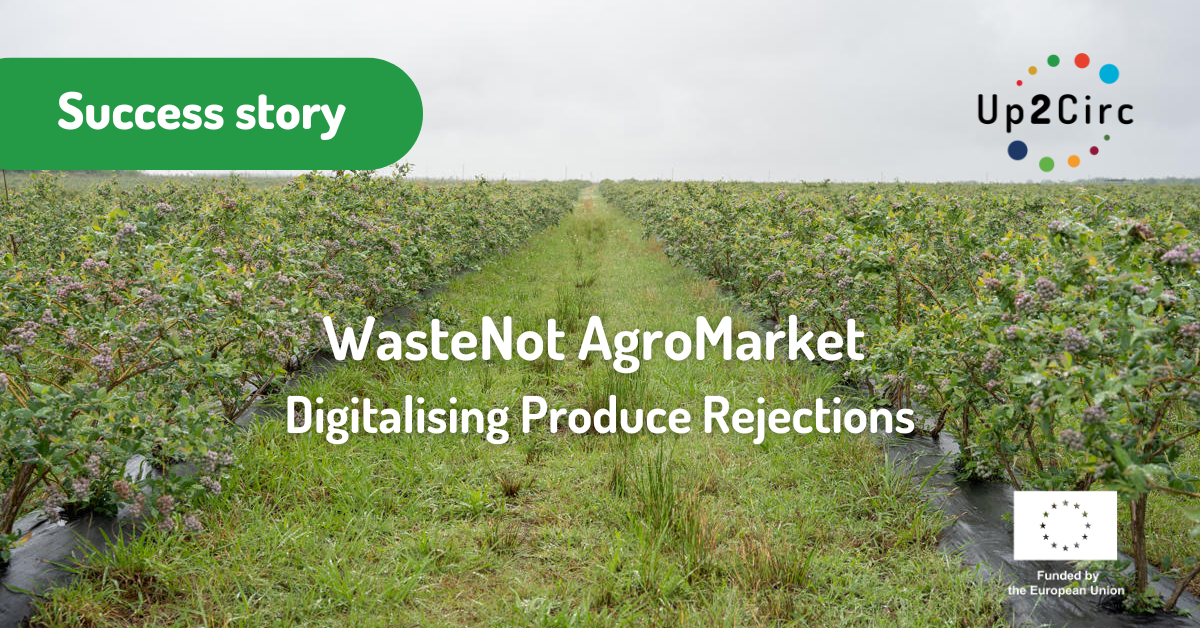
COMPANY NAME Defood
COUNTRY Poland
SECTOR Agri-food
CIRCULAR BUSINESS MODEL
Circular supply chain
Product life extension
CHALLENGE
Despite growing awareness of food waste, the market for second-grade agricultural products in Poland remains underdeveloped and heavily under-digitalized. Producers lack efficient tools to quickly sell quality returns, leading to unnecessary waste. Buyers, on the other hand, have no structured marketplace to access affordable goods for processing. The mismatch between supply and demand creates logistical inefficiencies, environmental harm, and economic losses.
SOLUTION
DeFood developed WasteNot AgroMarket – a digital platform module integrated with its existing B2B agri-food marketplace. The solution connects producers with surplus or rejected batches to buyers, processors, and traders in real time. Core features include dynamic listings, defect-based filters, “Hot Sale” urgency tags, and simplified logistics coordination. The goal is to extend the lifecycle of agricultural products and enable their reuse in processing or alternative channels, while reducing waste and carbon footprint.
CIRCULAR ECONOMY STRATEGIES/BUSINESS MODEL IMPLEMENTED
- Digital facilitation of circular trade: enabling instant resale of goods previously discarded.
- Product life extension: second-grade produce redirected to food processors or B2B buyers.
- Waste reduction through logistics optimization: coordination of group transport and urgent pickups.
- Platform as a service: available to external companies for B2B circular transactions.
IMPACT
Environmental impact
- 80% decrease in volume of quality returns based on the feasibility study
- 0.82 kg/t reduction in CO₂ emissions per transported tonne
Economic impact
- New revenue streams: +1,575 EUR in reclaimed value from DeFood’s own returns in Year 1.
- Platform monetization potential: 46,000+ EUR projected monthly recurring revenue by Month 24.
- Cost savings for buyers accessing below-market produce.
Social impact
- Increased platform engagement by small producers previously excluded from mainstream trade.
- Knowledge-sharing between producers, buyers, and processors around quality standards.
- Promoted market inclusion and more efficient use of regional produce.
KEY TAKEAWAY
Circular innovation in agriculture doesn’t always require new advanced technologies – sometimes, the biggest gains come from better data, faster communication, and rethinking what qualifies as “waste”. WasteNot AgroMarket proves that even rejected products can find value, customers, and purpose – when given the right digital environment to circulate.
